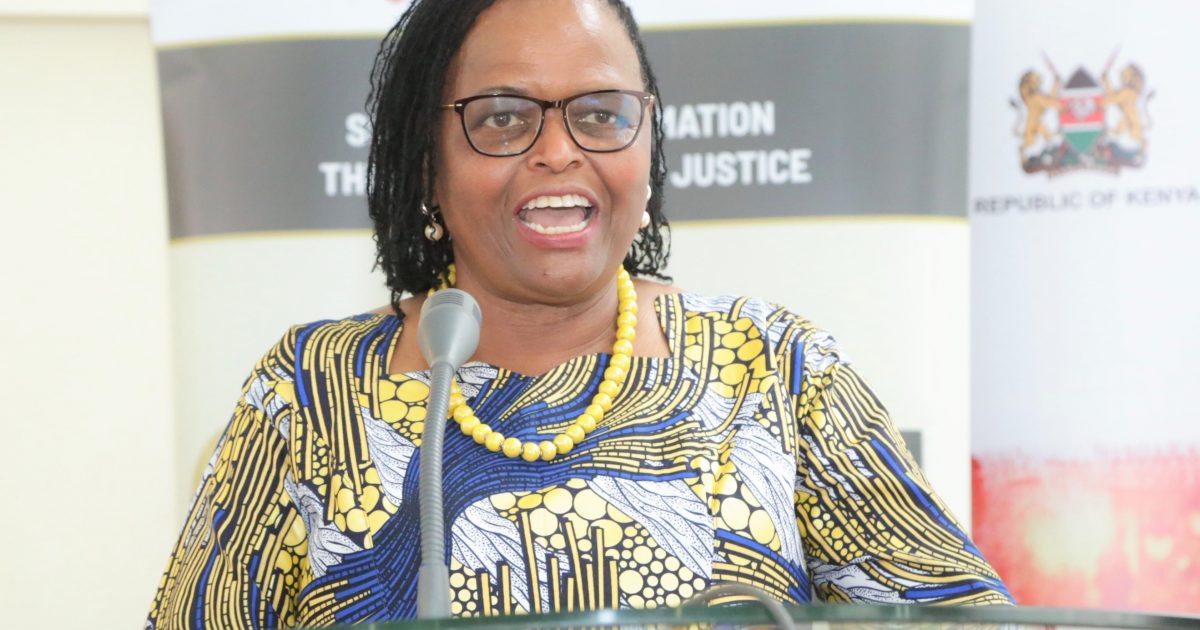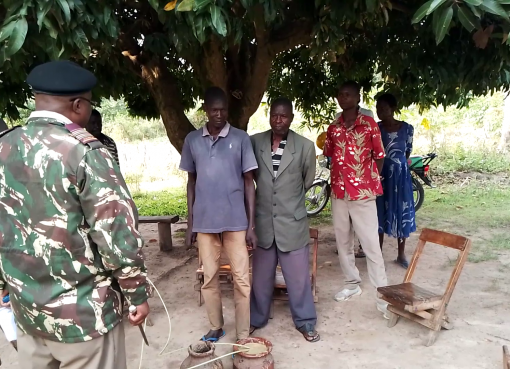Chief Justice Martha Koome has urged the newly elected Principal Judge of the Employment and Labour Relations Court (ELRC) Justice Byram Ongaya and his team to focus on the 2,843 cases which are in court during his first 100 days in office.
Koome said Justice Ongaya and his team should come up with strategies and interventions that will ensure that the cases are out of the court system by June 2023.
The CJ said currently ELRC has a total of 11,800 pending cases with a backlog of 9,582 cases of which 2,843 of these cases have stayed in the Court beyond the Judiciary’s Social Transformation through Access of Justice (STAJ) benchmark of three years.
Koome was speaking Friday during the Installation ceremony of Justice Ongaya as the Principal Judge of the ELRC court at Milimani Law Courts in Nairobi, who is taking over from Principal Judge Justice Maureen Onyango.
While congratulating Justice Ongaya, for his election and assumption of office the CJ said over the last five years, the ELRC referred 433 matters in Nairobi to Court Annexed Mediation, noting that the trend indicates that there is still room for deepening the uptake of mediation in employment and labour relations disputes.
The CJ said with the appointment of nine more Judges last year, the number of judges of ELRC has increased to 21, thereby placing the court in a position to manage its current caseload.
“I urge the ELRC to lead in developing a paperless Judiciary where court rooms are hosted on the cloud and litigants accord the flexibility of virtual proceedings, “said Koome.
She added that virtual proceedings and having a paperless judiciary will protect and preserve the gains brought about by e-filing and virtual proceedings to ensure efficiency in service delivery.
“You should also continue the process of entrenching our multi-door approach to access to justice. The ELRC court should encourage conciliation and mediation as alternatives to court adjudication in line with the spirit of section 15 of the Employment and Labour Relations Court Act.
She commended Justice Onyango for her service and leadership of the ELRC court over the last five years, a period in which the Court has grown in leaps and bounds both in terms of the quality of its Jurisprudence and in court performance as reflected in impressive case load.
The CJ noted that the transition in leadership of the ELRC Court, provides an opportunity for Judiciary and the nation to reflect on the critical role played by the Court in ensuring access to justice to the people and the realization of the Constitution’s vision of establishing a socially just State and society.
“This court occupies a central place and plays a critical role in hearing cases on employment and labour and advancing the goal of industrial justice by promoting peace and harmony in the workplace through the just settlement of disputes between employers and employees,” she said.
“This has ensured that our labour law jurisprudence strikes the desired balance of ensuring that the law and labour practices are not harsh but humane to the workers of our country whilst at the same time ensuring that our country remains a competitive investment destination to foreign and domestic investors, she added.
The CJ disclosed that the ELRC court has been gradually improving in service delivery citing Case Clearance Rate of 118 per cent in the First Quarter of the Financial Year 2022/2023, which she noted was a reduction in case backlog in the months of July to September 2022.
This has been achieved through continuous progress that has involved embracing new initiatives geared towards improving institutional performance like automation and leveraging of technology in service delivery, and embracing performance management, she stated.
She told Justice Ongaya as he takes over the office, as the team leader together with all the Judges of the ELRC to be drivers of court excellence in performance and innovations to secure enhanced performance by the ELRC.
“Our expectation as the Judiciary leadership, and the expectations by Kenyans, is that the Principal Judge, the Judges, Judiciary Staff, and the Court Users of the ELRC will be at the forefront in coming up with interventions to ensure timely delivery of justice to litigants,” she stressed.
She said the Social Transformation through Access to Justice Vision for the Judiciary pursues an agenda that intends to ensure that the delivery of justice is efficient and prompt.
“We have now set our benchmark for expedited delivery of justice to be the goal of ensuring that no court case stays in a trial court for more than three years, and no more than one year on appeal, ” said the CJ.
He encouraged all members to support the Principal Judge to re-examine their practices and re-engineer them to improve the efficiency of the ELRC.
ELRC being the doorway to the resolution of labour disputes, should be the driver of the social justice jurisprudence in that area, noting that a jurisprudence that is responsive to social context and the social-economic transformation imperatives of the 2010 Constitution.
She added that jurisprudence promotes social and the interest of employers and employees of the people who are the ultimate justice and beneficiaries of the industrial activities.
CJ said it should be an indigenous jurisprudence that serves not only the Judiciary purpose but can also be exported to other jurisdictions.
By Bernadette Khaduli




